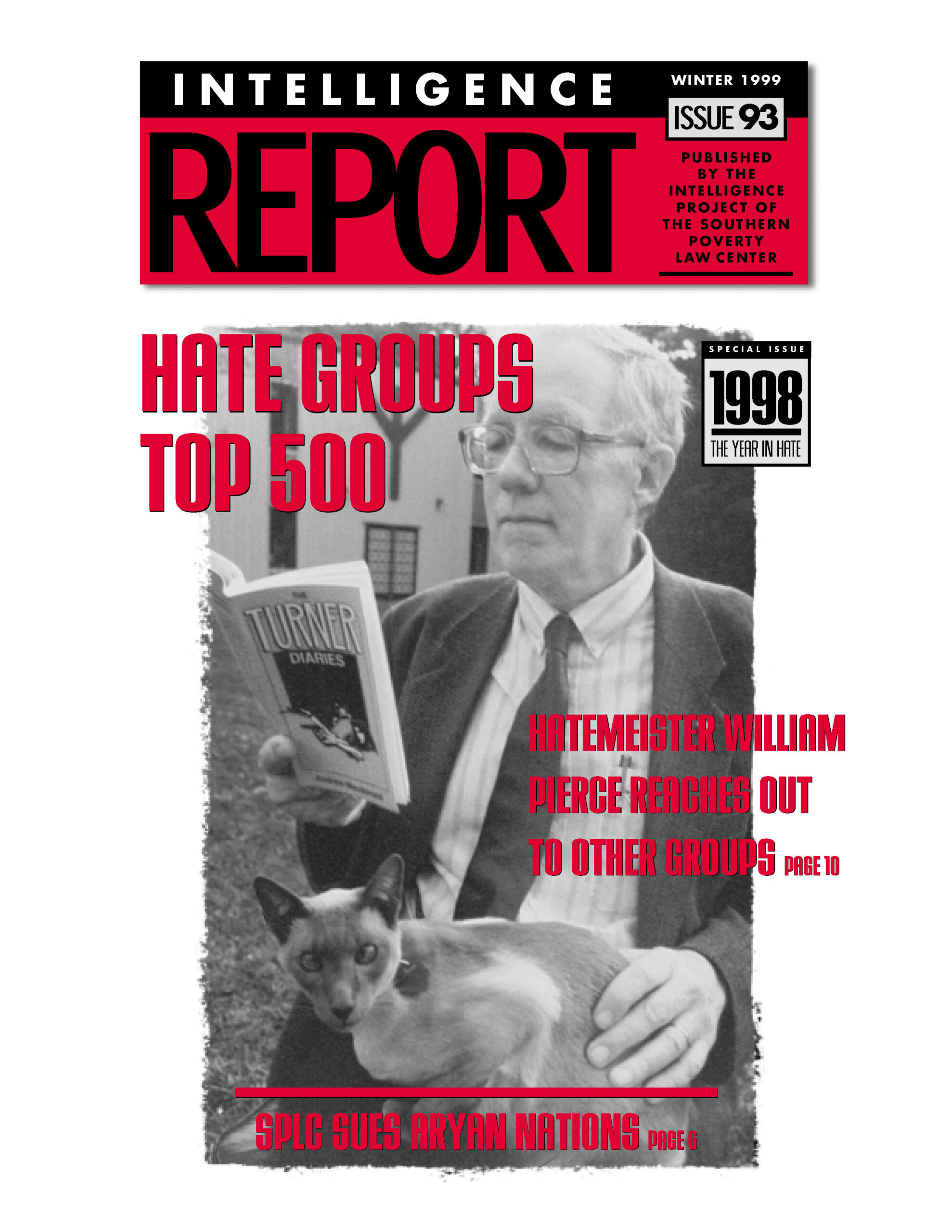Acts, not words, are the reason why the Christian Knights of the Ku Klux Klan and its leader, Horace King, were found liable for the arson of the Macedonia Baptist church.
When the Christian Knights of the Ku Klux Klan and its South Carolina leader, Horace King, were found liable last year for a church arson committed by Klan foot soldiers, many interpreted the verdict as a comment on the First Amendment.
The Washington Post, for example, reported on its front page that the Klan defendants were found liable because their words had created “an atmosphere of hate that led to the torching” of the Macedonia Baptist Church.
Yet the Klan and King were not found liable on the basis of incendiary speeches. Instead, they were held responsible because they actively participated in a conspiracy to burn black churches. Klan speeches were used merely to corroborate other evidence of the conspiracy.
Proof of Conspiracy
To establish a civil conspiracy, Macedonia proved that the individual Klan defendants came to an agreement to burn black churches. See Halberstam v. Welch, 705 F.2d 472, 477 (D.C. Cir. 1983); Ryan v. Eli Lilly Co ., 514 F. Supp. 1004, 1012 (D.S.C. 1981); Island Car Wash, Inc. v. Norris, 292 S.C. 595, 358 S.E.2d 150, 153 (Ct.App. 1987); Todd v. South Carolina Farm Bureau Mut. Ins. Co. , 276 S.C. 284, 278 S.E.2d 607, 611 (1981).
Once Macedonia established that the arson occurred as a result of a conspiracy, it was not required to establish that each defendant personally participated in setting the blaze or even knew about the fire before it was set. Halberstam v. Welch, 705 F.2d at 481; Hambright v. Walker, 211 S.C. 201, 44 S.E.2d 310, 313 (1947); State v. Woods, 189 S.C. 281, 1 S.E. 2d 190, 201-02 (1939).
All Macedonia was required to prove was that the arson was a natural and probable consequence of the conspiracy and was committed to advance the conspiracy’s goal. State v. Woods<, 1 S.E. 2d at 201-02; Halberstam v. Welch, 705 F.2d at 481.
To establish that the Klan organization itself was liable for the conspiracy, Macedonia proved that authorized Klan leaders participated in the conspiracy to further the Klan’s goals. See Hall v. Walters, 226 S.C. 430, 85 S.E.2d 729, 732 (unincorporated association liable for conspiracy involving officers and members), cert. denied, 349 U.S. 953 (1955).
The fact that a Klan official may have couched his authorization or agreement in a clever or subtle way provided no safe harbor. “One cannot shield himself by a form of words.” Restatement (Second) of Agency §212 comment e (1958); see, e.g., Smith v. Thompson, 655 P.2d 116, 117-18 (Idaho Ct. App. 1982).
No First Amendment Defense
The jury held King and the Klan liable, not because of their racist beliefs, but because they acted on those beliefs by conspiring to burn black churches. Such conduct has never enjoyed First Amendment protection, even when carried out by words alone.
See, e.g., NAACP v. Claiborne Hardware Co., 458 U.S. 886, 927 (1982)(“a finding that [a defendant] authorized, directed, or ratified specific tortious activity would justify holding [him] responsible for the consequences of that activity”).
As the Supreme Court has emphasized, “‘it has never been deemed an abridgment of freedom of speech … to make a course of conduct illegal merely because the conduct was in part initiated, evidenced, or carried out by means of language, either spoken, written, or printed.’” California Motor Transport Co. v. Trucking Unlimited, 404 U.S. 508, 514 (1972)(citation omitted).
“Speech thought to promote a criminal scheme,” for example, “is hardly within the ambit of the First Amendment.” United States v. Choate, 576 F.2d 165, 181 (9th Cir.), cert. denied, 439 U.S. 953 (1978).
In addition to presenting evidence that King conspired with other Klansmen to burn black churches, Macedonia presented certain statements King made at public Klan rallies for the jury’s consideration. Although these statements may have been entitled to First Amendment protection, they were properly considered as evidence of what King may have done or what his motives may have been.
See NAACP v. Claiborne<, 458 U.S. at 927 (“speeches might be taken as evidence” of what was done); Island Car Wash, Inc. v. Norris, 358 S.E.2d at 153 (“The law permits great latitude in the admission of circumstantial evidence tending to establish a conspiracy… .”).
The statements corroborated other evidence that King conspired to burn black churches. See NAACP v. Claiborne, 458 U.S. at 929 (speeches may be used to corroborate other evidence that defendant authorized wrongful conduct).
In one of the trial’s more dramatic moments, Macedonia presented evidence that King stated at a rally in Washington, D.C., that if the Klan had a problem with blacks in South Carolina, they would “burn the bastards out.”
Although King could not have been arrested or sued merely for making this statement, his remark was relevant to corroborate other evidence that he authorized Klansmen to burn a black church like Macedonia that had complained about Klan rallies.
The First Amendment, in short, does not prevent the courts from using the words of Klansmen against them.



